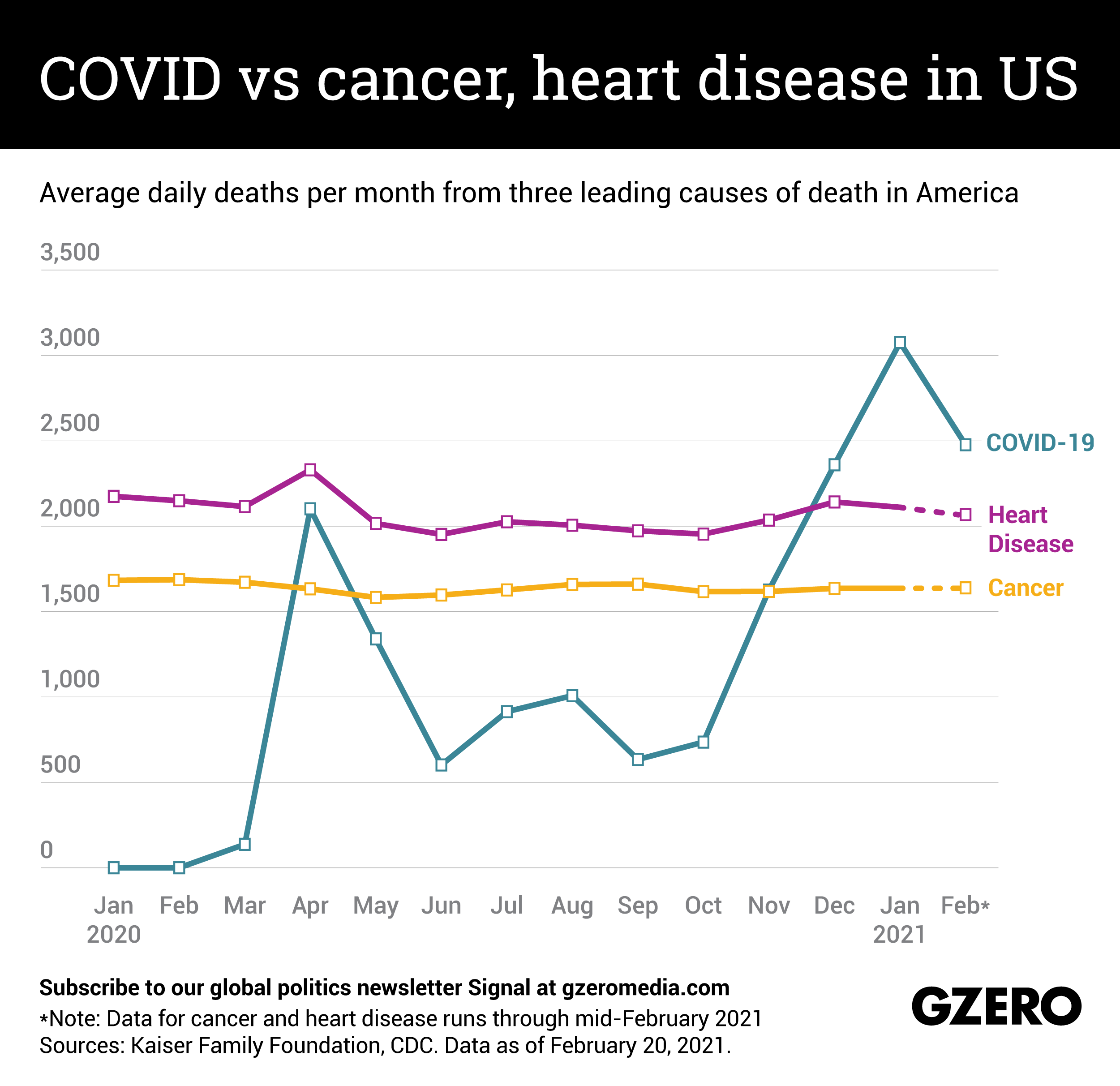Graphic Truth
The Graphic Truth: COVID vs cancer, heart disease in US
The US passed a grim milestone this week, surpassing 500,000 deaths from COVID-19, the highest total death toll in the world. COVID has now outpaced other killer diseases like cancer and heart disease to become the leading US cause of death. As a result, life expectancy in pandemic-ravaged America dropped by a year to 77.8 in the first half of 2020 — the largest dip since World War II. But there is some good news on the horizon: COVID hospitalizations and deaths are falling fast while the vaccine rollout picks up steam. To contextualize the scope of the crisis in America, we compare the average number of daily deaths from COVID over the past year to deaths from heart disease and cancer during the same period.
Annie Gugliotta
